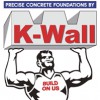
Limestone is layered and formed from the skeletons and shells of sea creatures that lived in warm seas millions of years ago. It will often contain seashells and fossils embedded in the surface. It is a unique natural stone and at times, contains visible mysteries of our past within. If limestone recrystallizes or "changes its structure", it turns into Marble. Limestone is a calcareous stone which is highly reactive to acidic substances such as vinegar, wine, lemons, etc. The stone will react negatively to these acids by etching or dulling and showing rings.
Engineered or man-made stone products isa "Green Product"that is increasingly popular and comparable to granite in just about every way. For those who love the look of granite but are concerned about its drawbacks, quartz may be the answer. And while granite is subject to unpredictable variations in color or pattern between slabs, engineered stone is uniform in color, pattern, and texture. It provides nearly all of the benefits of natural stone. Quartz (Silica/Silicon Dioxide, SiO2) is the most common mineral on the earth's surface.
In recent years, demand for stone counters has increased dramatically which has attracted contractors and granite suppliers with limited experience and poor business skills all in search of profits. And the variation in product source, machinery/equipment and skilled labor in the industry accounts for the huge discrepancy in countertop pricing. That's why you need to be even more careful choosing the right fabricator. There are too many different types of companies selling countertops; fabricators, contractors, online companies, brokers, some retail businesses and even some people who literally operate out of a garage and build countertops in your driveway.
Quartz countertops are fabricated from natural quartz, one of the hardest minerals found in the Earth, and small amounts of glass or metallic flecks are added to create variety, resulting in beautiful countertops. Other advantage of quartz is that it is a non-porous material, its texture does not allow bacteria to grow and resists against stains, protecting your family and making kitchen clean-up easy. For this reason, quartz countertops never need to be sealed. Aside from the durability that quartz provides, this material is beautiful and its wide variety of color options are sure to catch your eye.
While we're having this glorious weather, come check out our slab yard!
Similar Businesses







